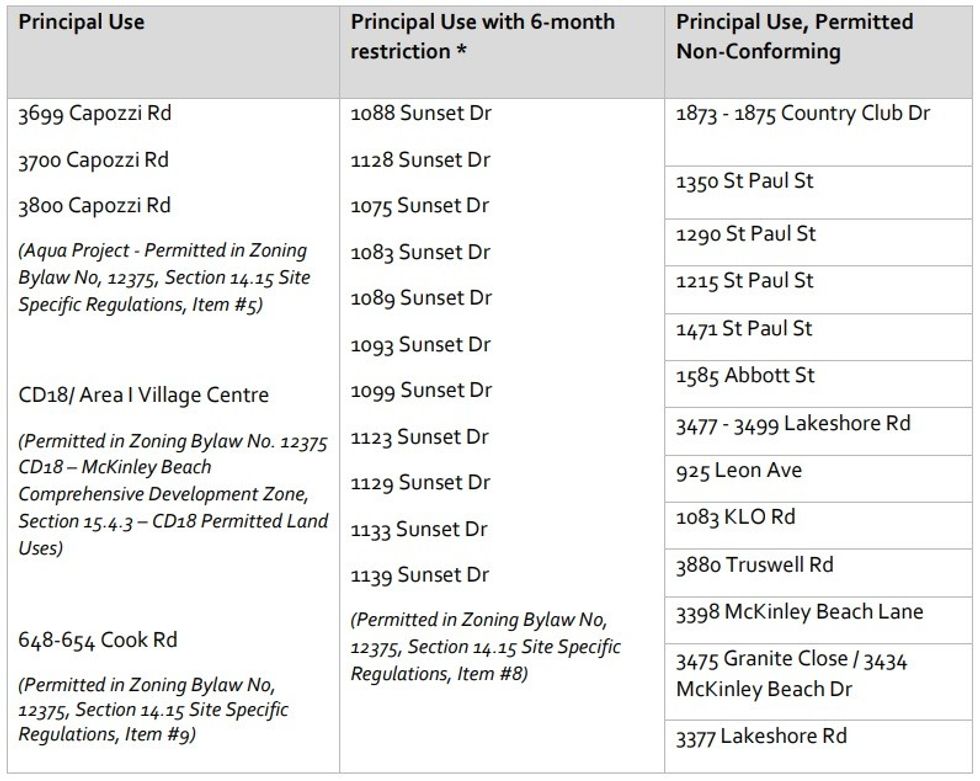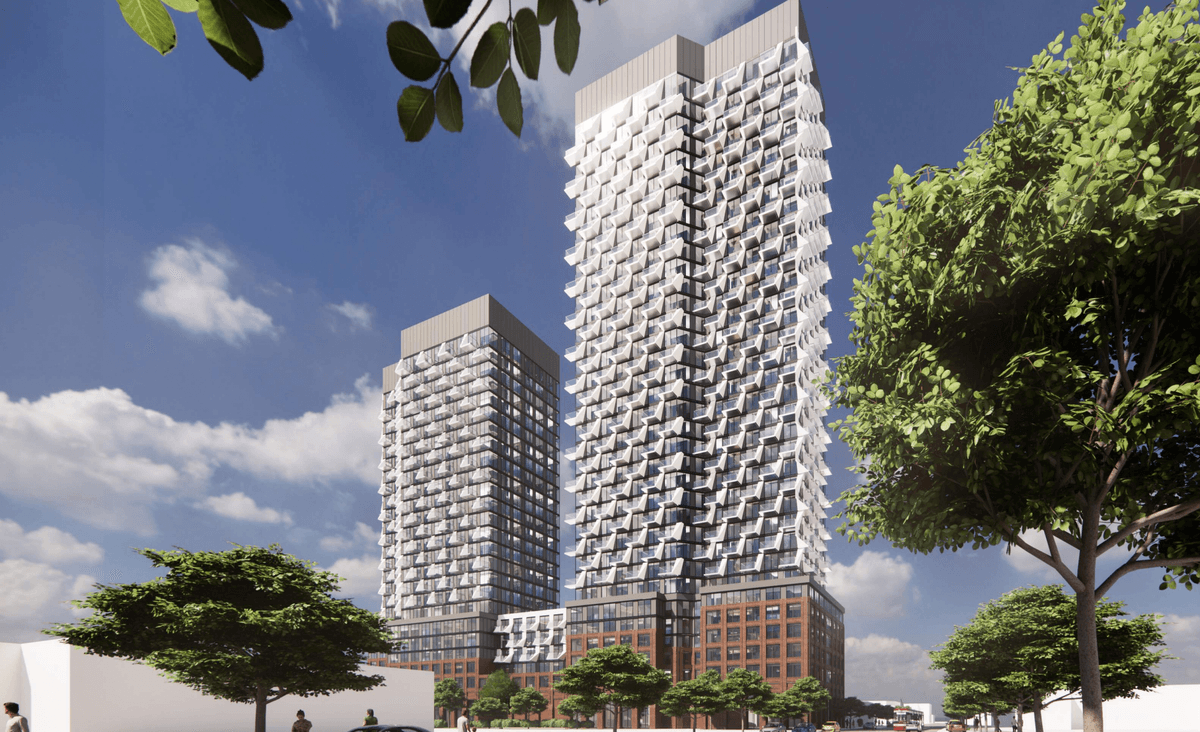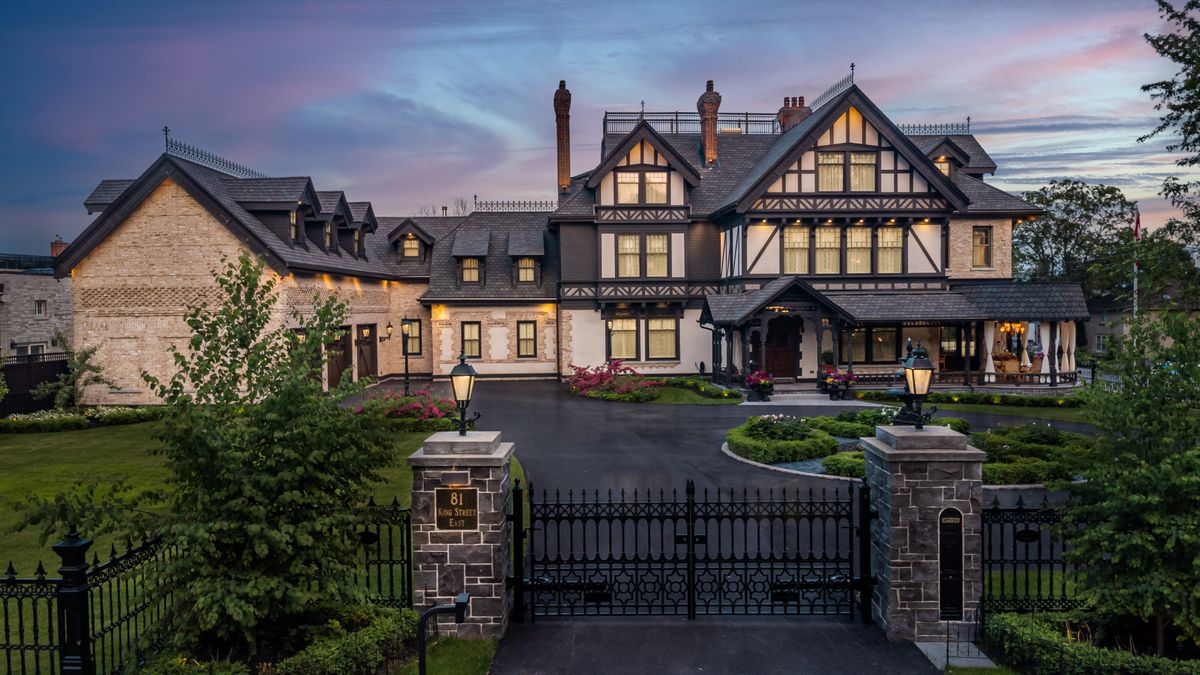The crackdown on Airbnbs and short-term rentals continues across British Columbia, with the City of Kelowna now also considering serious actions of its own.
On Monday, October 23, Council will be considering an amendment to its City-wide zoning bylaw that would remove short-term accommodation as a secondary use — within a principal residence, in other words — from Agricultural & Rural, Single & Two Dwelling, Multi-Dwelling, Core Area & Other Zones, and Comprehensive Development zones.
"At this time, short-term rental accommodation would remain a permitted principal use [in non-principal residences] in CD18 – McKinley Beach Comprehensive Development zone - Area I Village Centre only, as well as on properties with approved site-specific regulations," said City staff in a report to Council. "The intent of the original planning, and subsequent CD18 – McKinley Beach Comprehensive Development zone adoption was to have more typical resort accommodations in Area I, which is recommended to continue to be permitted in this area only."
Short-term rentals will also remain permitted as a principal use in a number of exemption areas, some of which will be permitted only with a restriction that those accommodations must be provided for long-term residential use for six months of the year.

The City says that all properties with a valid short-term rental business license — both those approved for principal use and secondary use — would be permitted to continue operating as a "non-conforming use" as defined by the Province's Local Government Act. According to the City of Kelowna, 427 properties would receive this non-conforming status.
However, in the Province's announcement of its own actions against short-term rentals earlier this week, one of the actions included "removing legal non-conforming use protections for short-term rentals," and the Province explicitly mentioned Kelowna — along with Victoria — as municipalities with these protections.
In its report, City staff note the above exemptions remain subject to change "as the City reviews additional information from the Province of British Columbia regarding the proposed Short-Term Rental Accommodations Act and associated regulations, including how the Act would be interpreted regarding the application of principal residence requirements and changes to legal non-conforming use protections."
"If the Province of British Columbia makes legislative changes relating to non-conforming regulations regarding short-term rental accommodation, the status of short-term rental accommodation being permitted on these properties may be required to change," says City staff.
The text of the legislation declares that "the non-conforming lawful use is not authorized to continue," so it appears that all 427 of those properties will no longer be allowed to continue operating.
Regarding new short-term rental business licenses, City staff are also recommending that the City stop accepting applications until the outcome of the proposed changes are determined — until after a public hearing and approval from the Province, if Council opts to move forward with the changes.
According to the City, as of September 2023, there are currently 1,191 valid short-term rental business licenses in Kelowna, which represents an 89% increase since 2020, with an additional 62 currently in the queue to be reviewed by staff. Of those 1,191 licenses, 693 (58.2%) were approved with short-term rentals as a principal use, while the remaining 498 (41.8%) were approved as a secondary use.
"Short-term rentals are diverting units of housing out of the regular rental market during a housing and affordability crisis," staff said. "As evidence of this, between 2019 and 2022, approximately 70 decommissioning permits have been issued for properties that subsequently applied for a short-term rental business licence. Under the current regulations, short-term rental accommodation is not permitted to operate within a carriage house or secondary suite, and for these properties, owners have removed a long-term rental unit in favour of a short-term rental instead."
A Housing Needs Assessment the City completed this year also concluded that 440-600 market rental units are required to meet the expected needs for Kelowna, and the City notes that converting short-term rentals into long-term rentals would contribute towards that.
City staff also note that the Province has also indicated that it may introduce legislation to allow multiple dwellings on a single-family lots, and say that making the changes now would be proactive and ensure new dwellings are for the long-term housing needs of Kelowna.
The recommended changes come as a result of a review that was initiated in July. City staff also indicate that if these changes are ultimately approved, they can be reviewed and discussed after one year. Following the Province's announcement earlier this week, Deputy Prime Minister and Minister of Finance Chrystia Freeland said that the Government of Canada is also "actively examining" actions it can take against short-term rentals.





















